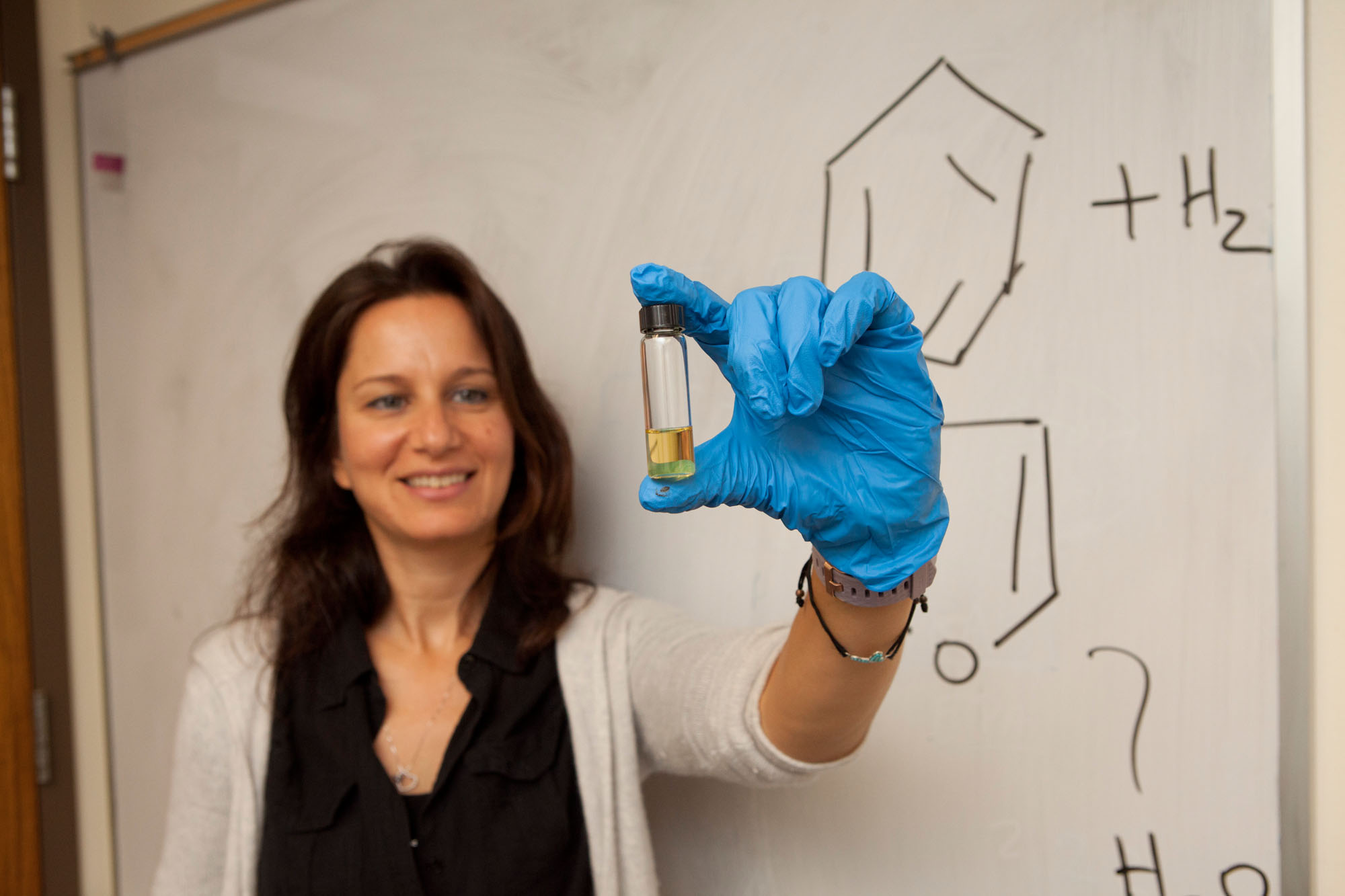Julia Valla, an assistant professor of chemical and biomolecular engineering at the University of Connecticut has received a $227,000 grant from the National Science Foundation for a project to develop hollow molecules with tunable properties. She is working with Vijay John, professor at Tulane University.
In nature, reactions occur as a cascade wherein the product of one chemical reaction provides the materials or catalyst needed for the next one.
This project seeks to develop a manufacturing process to produce novel hollow particles with controllable properties and functions for various catalytic applications in energy storage, drug delivery, gas sensing, and more.
One of the primary challenges faced in the advancement of nanoscale technology is producing sufficient quantities of materials to allow the technology to be produced and commercialized.
Valla and John propose to create these molecules through an aerosol process, a well-known technique for rapidly producing functional inorganic molecules.
The aim of this research is to gain a better understanding of the steps involved in the aerosol-based manufacturing method. Once more is known about this process, Valla and John hope to be able to tweak the steps and conditions involved to produce molecules with specific characteristics.
For instance, the researchers want to investigative how things like the thickness of the shell surrounding the hollow molecule and the molecules porosity can impact its functionality as a catalyst.
The researchers hypothesize that they can change the chemistry within the droplet during the manufacturing process, altering these properties and also creating the possibility of adding active sites for catalysts in the particles.
One important application Valla and John will test in this study is how these particles could be used to remove harmful chemical compounds – trichloroethylene and perchloroethylene – from the environment. These compounds are one of the most common pollutants at industrial sites.
These compounds are used for a variety of chemical operations from dry cleaning to metal degreasing. These compounds contaminate groundwater and they stick around in our ecosystem for a long time. Trichloroethylene and perchloroethylene can have serious toxic and carcinogenic properties which pose health threats to humans.
Valla received her Ph.D. from Aristotle University of Thessaloniki, Greece in 2005. Her current research focuses on biomass to energy and fuels, waste to energy, sulfur removal from natural gas and transportation fuels, refinery processes, and hierarchical pore structure zeolites.
This project is NSF Grant No.: 1826213



